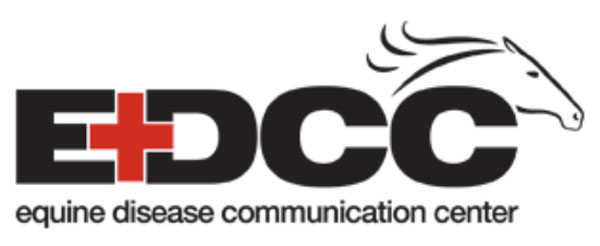
This year the Equine Disease Communication Center (EDCC) is celebrating five years as an industry initiative, which continues to advocate for the use of technology in reporting equine diseases.
Conceived after a major equine herpesvirus outbreak in 2011 that involved 240 plus equine premises in 19 states and two Canadian providences, it was apparent a universal communication system for the equine industry was necessary to help prevent disease spread. The EDCC was created and continues to be supported by all parts of the horse industry.
Rapid spread of infectious disease can do irreparable harm to horse health and cripple the horse industry. Just as the COVID-19 pandemic has amplified the need for consistent, reliable medical information for people, the Equine Disease Communication Center serves as the source for providing the current facts about infectious disease in horses.
During the last five years, the EDCC has sent out more than 1,880 alerts for about 4,510 cases or outbreaks to 8,300 email subscribers and 14,133 Facebook followers. The website (https://www.equinediseasecc.org) offers horse owners pertinent disease fact sheets and biosecurity information, reviewed by veterinarians on the American Association of Equine Practitioners Infectious Disease Committee. An EDCC phone app offers instant access to alerts and updated disease and biosecurity information.
The benefits of the EDCC communication system are evident from recent outbreaks of equine herpesvirus at racetracks where large numbers of horses comingle and frequently move to and from tracks, farms and training centers. The prompt EDCC reports have allowed the affected track and local equine community to communicate the steps taken to stop the disease from spreading. Dr. Kathleen Anderson from Equine Veterinary Care at the Fair Hill training Center uses the EDCC to keep informed about current disease outbreaks across the country. “Having timely and reliable information allows unaffected racetracks and other horse facilities to assess risk before moving horses. Knowing that a track or farm has successfully contained the disease by quarantine helps surrounding horse activity to continue uninterrupted.”
Up until five years ago, the equine community had to rely on multiple sources to learn about infectious diseases in specific areas. Sometimes that caused confusion and spread of misinformation. Because horses are transported more than any other animal, up-to-date information is necessary to know where there is a disease risk.
“I am happy to celebrate five years of growth for the EDCC service and look forward to increasing of our efforts to educate all stakeholders about infectious disease,” said Dr. Nathaniel White, director of the EDCC.
The EDCC is entirely dependent on funding from owners, horse organizations and allied companies. “The need for this type of system has been a long time coming, and we are happy to be a part of the EDCC’s efforts to continue to protect and improve horse health by providing real-time and reliable information,” said Dr. Katie Flynn, chair of the AAEP Infectious Disease Committee.
Donations are needed annually to support the EDCC staff and activity. To donate go to the EDCC website support page https://www.equinediseasecc.org/support-us or send your donation to The Foundation for the Horse, c/o Equine Disease Communication Center, 4033 Iron Works Pkwy, Lexington, KY 40511. The EDCC fund is maintained in The Foundation for the Horse and all donations are tax deductible. Contact Katie McDaniel, EDCC communication manager at kmcdaniel@aaep.org for information on the EDCC or to donate.
About the Equine Disease Communication Center
The Equine Disease Communication Center, headquartered in Lexington, Kentucky, is an industry-driven initiative that works to protect horses and the horse industry from the threat of infectious diseases in North America. The communication system seeks and reports real-time information about diseases like how the Center for Disease Control and Prevention (CDC) alerts human population about disease in people.


